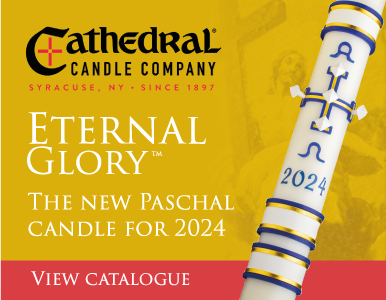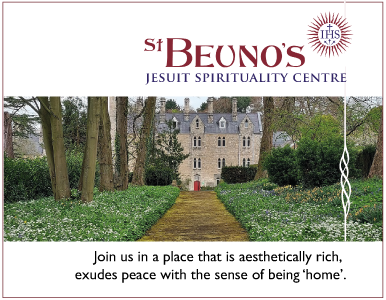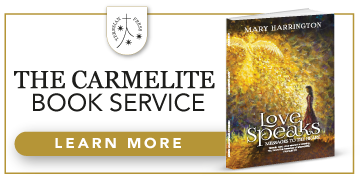Sorry, no records were found. Please adjust your search criteria and try again.
Sorry, unable to load the Maps API.
Catholic Theology is often considered the domain of academics and bureaucrats but it can offer ordinary people an opportunity to engage intellectually with the church and their communities, writes Professor Karen Kilby, Bede Professor of Catholic Theology at Durham University.
People often refer to Catholic Social Teaching as the church’s best kept secret. Maybe it is. But I think there could be competition for the title. The Catholic church has not only a tradition of social teaching, but also a rich and varied theological tradition, which most Catholics know little of. I think Catholic Theology is every bit as well kept a secret as Catholic Social Teaching.
For the last decade I’ve held the Bede Chair of Catholic Theology at Durham University, and part of the role has been outreach to the diocese of Hexham and Newcastle. It’s been a great honour and a great pleasure to speak all over the place—at Diocesan festivals, in parishes, to justice and peace groups, in schools, at retreats, to groups of clergy, spiritual directors, chaplains, school leaders. One of the reasons it’s such a pleasure is that quite often the audience is out-of-all-proportion grateful and enthusiastic when some space is opened up for the exploration of ideas. People seem starved for intellectual stimulation in a church context, and for spaces which allow them to give expression to the thoughtful, seeking, questioning sides of themselves.

We don’t for the most part have any tradition of homilies as places for deep probing intellectual engagement. This is partly for good reasons: clergy are very conscious of their duties to the whole congregation, whose age, education and life situation can vary enormously. But it’s also partly the sad side-effect of priests often not having had a good encounter with theology themselves in their own education. (In my limited experience deacons have often had a slightly happier, if briefer, exposure to theology.)
The word “theology” can bring quite grim and depressing associations. I know at one stage I imagined it as something done by Vatican bureaucrats as they scrambled around to make sure whatever the Pope of the day said could be justified. I instinctively imagined these theologians in dark spaces, wearing dark clothes and beards, hunched over, avoiding anything fresh and challenging. People can also associate “theology” with something elite, aligned with power structures, perhaps repressive, enforcing assent on people. Or as all about drawing lines, deciding who is “in” and who is “out”—paralleling in a Catholic context the way Britain is so painfully redrawing its own lines of citizenship, as the treatment of Shemima Begum makes clear.
But in truth theology is both fascinating and liberating. It is fascinating because it raises all kinds of questions you didn’t quite realise you had been wondering about. Here, for instance, is a classic one from the later Middle Ages: if there had been no “fall”, nothing gone wrong in the world, would Christ still have come? Would there have been an incarnation? At first this seems a strange and hypothetical question, but the longer you think about it the more significant it can come to seem. Is Christ God’s great plan B, or was the Incarnation, the intimate uniting of God with humanity, actually always part of what God wanted? Or here is another issue, which has been part of the theological tradition from the beginning, but never quite resolved: can we believe in, or hope for, universal salvation? Must we assume hell is populated? Or again, what about divine wrath? Do we need to believe there is such a thing? I’ve always thought that Julian of Norwich reasoned really well when she said that if God were angry with the world, even for a moment, it would cease to exist.

In other fields, there are rich resources for the interested lay person. If you are fascinated by history, there are no end of the books you might read without having to get a degree in the subject. Interested in science? Huge efforts have been poured into creating accessible literature, not to mention radio and television programmes (think David Attenborough). Interested in theology… it’s not so easy to see where to point you. We theologians seem to have spent too much time talking to each other, not enough making things accessible to intelligent but non-technically trained people. I’m inclined to think the Anglican tradition has done a little better here than the Catholic: in the 20th century they’ve provided us with the extraordinary work of CS Lewis, and more recently even an erudite figure like Rowan Williams is actually rather good when writing for a wide audience.
In the Centre for Catholic Studies in Durham, we’re very committed to reaching out beyond our professional colleagues, to putting on programmes of lectures, conferences and other forms of outreach. And of course we are not alone in Durham—one can find places in London or Liverpool or elsewhere where this goes on. And yet, always, there is a sense that it is not enough—that we create little pools of theological offering, but many who might be interested are left without access to this too-hidden richness in the Catholic intellectual tradition, without the knowledge that there is anything out there available to them.
Because I am convinced that there is an intellectual appetite much greater than anything any of us are meeting, I’m very committed to a new initiative we’ve taken in Durham. We’ve just begun to offer an innovative programme in Catholic Theology—an MA for those who want, or something smaller (Certificate, Diploma) for those who want to dip their toes in. Soon we will be able to make a single module available for those who want to begin cautiously, entitled “Catholic Theology: A Preliminary Tour”.
The starting point for our design is that most people who get interested seriously in theology are not 18 or 21—it is typically something which emerges at a later stage in life. And usually, people who are not 18 or 21 have other things going on in their lives – work, a house, family, health issues, caring commitments, perhaps they may even be enclosed within a contemplative order. People cannot drop everything and move to a small city in the Northeast of England, no matter how beautiful that city is and no matter how interesting we think we may be.
In recognition of this we have tried to design systems of teaching adapted to as many different situations and life patterns as possible, and in as many places as possible, while still allowing our students to engage with one another and with ourselves as their teachers. We are very conscious that we need to find a way to make the riches of theology accessible in a way that finds people where they are, rather than expecting them to come to us.
So far, with our first cohort, it is working well. They’re impressively varied in their life situations, and include people who work for NGOs, for international organisations, people who look after children and someone who is, at the moment, out of work; people in their 20s, in middle age, in their 70s; two Catholic priests and one Anglican; a consultant neurosurgeon, a teacher, a school chaplain…. They’re a delight to teach and to get to know, and I am looking forward to our first “Residential” in April when we will meet everyone in the flesh.
We can’t cover everything we’d like to, but I think we are offering a fairly rich set of possibilities, with two modules focused on medieval theology, one on how to think about changing the church, one on Catholic Social teaching, one that draws many strands together under the theme of “faith and reason”, and so on.
Still, of course, it is not enough just to offer more accessible postgraduate study to those who have a degree. Not everyone who might benefit from theology has a degree. And plenty of people are intellectually curious but don’t want to engage in formal theological study. So of course this new initiative can never meet the whole need, even if it grows and prospers. There is still a need for us as theologians to do more in other ways to reach more people. But perhaps our new cohorts of students, if all goes well, can help us find our way towards doing this.

Professor Karen Kilby is Bede Professor
of Catholic Theology at Durham University.

https://www.durham.ac.uk/research/institutes-and-centres/catholic-studies/






























